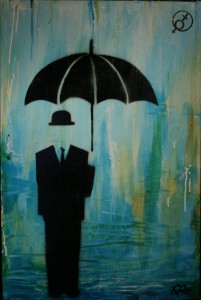 It is a common expression of concern for men to hear that “it’s important to express your feelings about this loss.” The prevailing conventional “wisdom” is that men do not necessarily grieve well… that they could be better at expressing emotion.
It is a common expression of concern for men to hear that “it’s important to express your feelings about this loss.” The prevailing conventional “wisdom” is that men do not necessarily grieve well… that they could be better at expressing emotion.
In part, this is due to the fact that historically the field of psychology has primarily studied the ways women dealt with grief, and so tended to think of emotionality as the most effective way of working with grief, to the exclusion of most of the other ways people commonly experience it. The widely held belief has been that there is only one way to grieve, and that way is to explore the emotional effects of your loved one’s death in order to resolve grief.
Reality Check
We now know that the evidence and literature no longer support this notion. In fact, grief is manifested in many different ways; physically, emotionally, cognitively, behaviorally and spiritually. Grief is a very individual reaction and people do the “tasks” of grieving differently, those differences are not necessarily better or worse, they are just different.
Men often have a more active way of grieving and women a more emotional way, but those differences do not always divide along lines of gender. Another way to think about it is that some people grieve in a more “intuitive” way (many women) and others in a more “instrumental” way (many men). Intuitive grievers experience strong emotional reactions, their facial expressions often reflect those emotions, and they primarily process their grief through the expression and exploration of their feelings. Instrumental grievers experience their grief more cognitively and physically, and primarily express that through thinking and doing. Intuitive grievers will often cry whereas an instrumental griever is more likely think about their lost loved one. Shakespeare is said to have dealt with the grief of losing his 11-year-old son by writing plays, which is a good example of “instrumental” grieving.
How To Be Supportive
Instrumental grievers have often gotten the inaccurate message that the way they are grieving is inadequate, and in that way often feel disenfranchised. Validating their way of dealing with their grief can be such a huge relief. Let them know that you understand that they are dealing with the loss of their beloved pet in their own way and offer them your full support in doing that. Instrumental grievers may benefit from “doing” things as it relates to loss. End-of-life planning and caretaking, tasks related to companioning a pet through their final transition, helping to care for their body after death, and planning and preparing memorials are all “thinking” and “doing” tasks that may help them to experience their grief more thoroughly and to feel acknowledged, supported and appreciated in doing so in their own unique way.

One Response to Ways People Grieve Part I – The Myth of Men and Grief